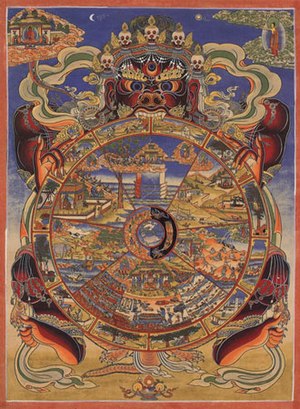 Andrew Olendzki's book, Unlimiting Mind (2010) is the first text we will read in this year's study group in mindfulness and psychotherapy. Olendzki is one of the foremost American teachers of Vipassana, a Buddhist school which emphasizes mindfulness. His writing is wonderfully clear and he makes some of the ancient Buddhist texts and ideas very accessible.
Andrew Olendzki's book, Unlimiting Mind (2010) is the first text we will read in this year's study group in mindfulness and psychotherapy. Olendzki is one of the foremost American teachers of Vipassana, a Buddhist school which emphasizes mindfulness. His writing is wonderfully clear and he makes some of the ancient Buddhist texts and ideas very accessible.
For the next meeting of the study group (October 8), I'm recommending that we focus on the sections that are most directly related to Buddhist psychology and the underpinnings of mindfulness: section 4, "The Practice;" section 5, "Understanding the Teachings;" and section 8, "The Emergence of Mindfulness".
Olendzki has chosen a great title for this work, because it addresses the central question of Buddhists and psychologists alike. How do we get free of the limitations which stand between us and a fulfilling, worthwhile life? Olendzki turns to ancient Buddhist sources (the scriptures recorded in the Pali language about 300 years after Buddha's death) for his answer, and so gives us a window into the wisdom and traditions that have preserved mindfulness to this day. He writes insightfully about the conditioning which leads all of us to go through our lives on automatic pilot, concerned primarily with how to accumulate the things we like and get rid of the things we dislike. We are hardly aware of the psychological processes that restrict our happiness, and Olendzi's great contribution is to make those mental functions accessible to our western consciousness.
One very interesting approach to Unlimiting Mind is to read it while reflecting on our modern applications of mindfulness. It is especially illuminating to consider the connection between values and mindfulness in Acceptance and Commitment Therapy (ACT) while reading Olendzki's account of "Changing your mind" in section 4. Also, in section 5, Olendzki discusses one of my favorite concepts from Buddhist psychology: Papanca. Referring to our tendency to "mentally proliferate" on our experience, and to become absorbed in our reactions to the point of being completely out of touch with our basic experience, papanca is the Buddhist forerunner of ACT's core concept of cognitive fusion.
I'm hoping that reading Unlimiting Mind will develop a familiarity with Buddhist psychology that will help us see the roots of the ACT processes that were rediscovered though Relational Frame Theory. I'm looking forward to a stimulating and wide-ranging discussion on October 8th.





1 comment:
Quite a lucid post, thank you. It is curious how rapidly mindfulness is becoming so embraced within Western cultures and psychotherapy in general.
Post a Comment